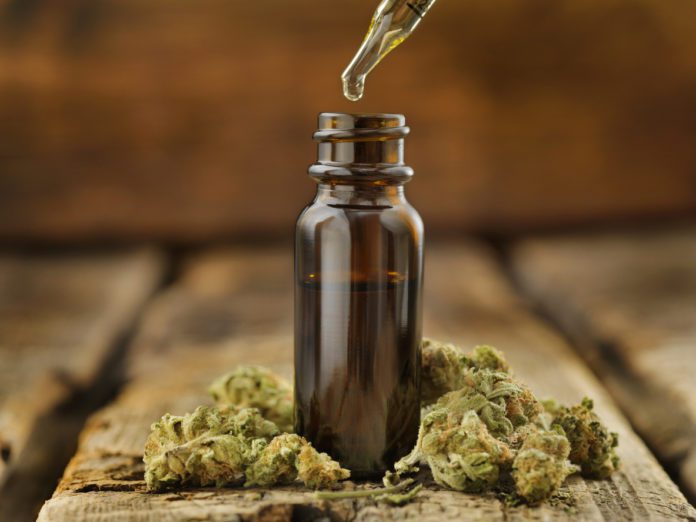Cannabidiol, also known as CBD, recently surged into the spotlight due to the vast number of its medicinal benefits. It acts anti-inflammatory, relieving pain, and anxiety, while also suppressing the frequency and intensity of epileptic seizures. Thanks to those benefits, the number of doctors prescribing CBD therapy increases by the day.
Its increased popularity landed it a place in health and wellness aisles, and major pharmacies all over across the world, including major local retailers. It sells in various forms, including CBD oils, tinctures, pills, gummies, and other edibles, as a vape liquid, and hand cream. It even sells as a bath bomb.
The legalization of marijuana, and the rising popularity of the cannabis-related products, made CBD products incredibly popular. But what exactly is CBD? Does it get you high, and can it be detected on a drug test? What are the things you should know when selecting and purchasing CBD products?
In this article, we’ll discuss what exactly is CBD, its relation to other components of cannabis, and drug test detection.
CBD and THC
CBD or cannabidiol is a naturally occurring chemical compound found in cannabis and hemp plants. Unlike its cousin THC, CBD isn’t psychoactive, so it won’t get you high. However, there’s an exception to every rule, since about 5% of users reported feeling altered after taking CBD. The reason behind this is the individual response to CBD, and the same reaction can happen when you the ibuprofen.
THC is a different matter since it’s a psychoactive component of cannabis, responsible for most of marijuana’s psychoactive effects. THC induces euphoric states, by stimulating the brain to release dopamine. However, it may interfere with how the information is processed in certain parts of the brain and induce psychomotor impairment.
The same plant both produces CBD and THC, and though incredibly similar on a molecular level, their effects are vastly different. Molecular similarities of these components raised the question: Will CBD oil show up on a drug test for marijuana?
CBD and drug tests
Before we answer the question of CBD showing up on a drug test for weed, let’s first discuss the tests themselves. Most employment or court-ordered drug test looks specifically to the presence of THC, or THC metabolites.
Passing a drug test doesn’t mean that you’re THC-free and that there are no drug metabolites in your system. Testing negative only means that the amount of THC in your sample is below the cut-off value. In urine, any THC concentration below 50 nanograms per milliliter won’t trigger a positive result, so you’ll test negative.
However, this greatly depends on the amount of weed you smoked, and the potency of the plant. THC is fat-soluble and can be incredibly challenging to get rid of, making it detectable in urine for a significant amount of time.
But unlike THC, the CBD won’t show up on a drug test, because no one’s looking for it. And there’s no reason for it since it doesn’t alter your brain chemistry. THC is highly frowned upon in business settings because its use impacts brain chemistry, decision making, and information processing.
So, the events of CBD oil showing up on a drug test are more than highly unlikely, they’re borderline impossible.
Unless…
CBD and THC are derived from the same plants – cannabis and hemp. But there are some differences in the CBD and THC contents of these plants, and some potential risks when it comes to drug testing.
The potential risks involved regarding CBD products is due to their contamination by THC or the lack of. Since they’re produced and derived from the same plant, CBD products may contain traces of THC. Though this is highly unlikely, it may still happen.
There are some differences to consider, though. Hemp-derived CBD oil is much less likely to contain alarming traces of THC, than cannabis-derived CBD. Hemp contains less THC and CBD altogether but generally has higher CBD levels over THC, unlike cannabis, which has higher levels of THC.
Cannabis-derived CBD products, including oils, have a higher chance of contamination, and therefore a higher chance of getting detected on a drug test. Despite that, and regardless of the source, most CBD products have unalarming traces of THC, if they have any at all.
However, when facing a drug test, one should always exercise caution, and there are certain precautions you can take.
Check your product
Not every cannabis plant is the same, so it stands to reason that not all cannabis-derived products are the same, either. The same rule applies to CBD products, including oils, but excluding CBD-isolates.
Hemp-derived CBD oils are legally required to have less than 0.3% THC, which makes them virtually undetectable on a drug test. Cannabis-derived full-spectrum oils, on the other hand, have much higher levels of THC. Though unlikely, these elevated levels of THC might make full-spectrum CBD oils detectable on drug tests.
CBD-related products are still mostly unregulated by the FDA, and not all manufacturers disclose where their extracts came from. That’s why you should always evaluate the product before you buy it. Reading product information might reveal whether the product came from weed or hemp. Also, opt for products that list the amount of CBD the product contains.
Conclusion:
The bottom line is that using CBD oils shouldn’t show up on a regular drug test. Despite that, we strongly advise that you exercise caution when purchasing your CBD products.
CBD industry isn’t regulated continuously, and you might not always get what you’re paying for. That’s why its highly recommended that you purchase CBD products from reputable sources and manufacturers that have been checked by a third-party laboratory.
